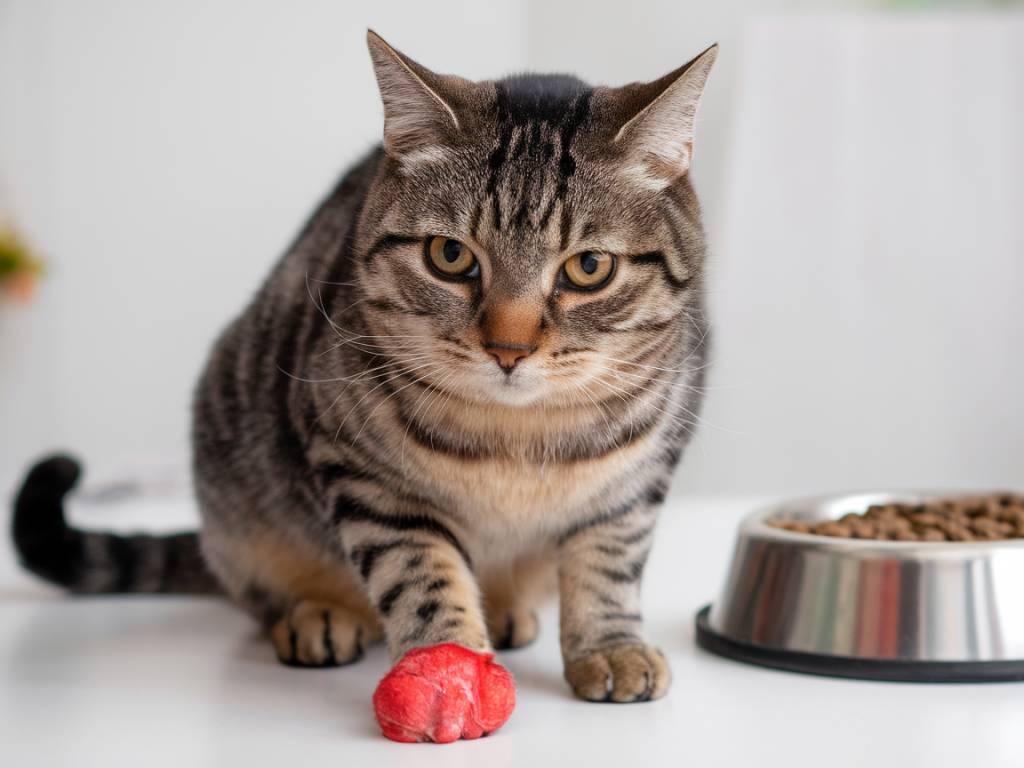How to identify and treat food allergies in cats

how to identify and treat food allergies in cats
Understanding Food Allergies in Cats
Food allergies in cats can be perplexing for pet owners, often leading to unnecessary steps if not correctly identified. Unlike more common food intolerances, food allergies involve a specific immune response to certain ingredients within a cat’s diet. Recognizing and treating these allergies can significantly improve your cat’s quality of life.
Cats can develop food allergies at any age, although they typically manifest in adulthood. Proteins are the most common allergens, with beef, fish, and chicken being the usual suspects. While pinpointing the exact allergy can be challenging, it’s crucial for your cat’s overall health.
Signs and Symptoms of Food Allergies
Cats may exhibit a range of symptoms if they have a food allergy. These symptoms can overlap with other conditions, making it difficult to diagnose a food allergy without proper veterinary guidance. Key symptoms include:
- Itching and Skin Irritations: Persistent itching is one of the most common indicators, often leading to excessive grooming, hair loss, or skin infections.
- Gastrointestinal Issues: Vomiting, diarrhea, and even gas mimic food intolerances but can also signal an allergy.
- Respiratory Signs: Sneezing, coughing, and wheezing may occur in some cases and are often mistakenly attributed to conditions like asthma.
- Ear Infections: Recurring ear infections not responding to usual treatments may hint at an underlying food allergy.
The Diagnostic Process
Diagnosing a food allergy in cats involves a thorough approach, often starting with an elimination diet. Here’s what to expect during the diagnostic process:
- Consultation with a Veterinarian: Always begin by consulting your vet. They may recommend diagnostic testing to rule out other conditions.
- Elimination Diet: This involves feeding your cat a diet with novel proteins and carbohydrates, those they haven’t consumed before, for a period of 8-12 weeks. Strict adherence to the elimination diet is necessary for accurate results.
- Food Challenges: If the symptoms improve, you might gradually reintroduce old foods one at a time, observing your cat for any recurrence of symptoms.
Managing and Treating Food Allergies
Once a food allergy is confirmed, managing your cat’s diet becomes paramount. Here are some essential tips:
- Identify Safe Ingredients: With your vet’s guidance, identify ingredients that do not cause an allergic reaction.
- Homemade Diets: If store-bought options are insufficient, you may consider preparing homemade diets, ensuring they are nutritionally balanced.
- Hypoallergenic Diets: Your vet might suggest a hypoallergenic or hydrolyzed protein diet. These special foods are designed to reduce the likelihood of allergic reactions.
Prevention and Ongoing Management
Preventing flare-ups involves long-term vigilance in dietary habits and monitoring your cat’s health regularly. Here are key strategies:
- Consistent Monitoring: Keep track of your cat’s symptoms and any dietary changes. Noting any reactions can help you and your vet make informed decisions.
- Avoiding Cross-Contamination: Ensure that foods and feeding utensils are free from the allergens. This is particularly important in households with multiple pets or children.
- Regular Vet Visits: Regular check-ups can help in adjusting dietary plans and ensure your cat’s nutritional needs are met while managing the allergy.
- Quality of Life: Ensure your cat engages in regular play and receives emotional support. Stress can exacerbate symptoms.
When to Seek Professional Help
Cats, similar to humans, require professional assessment for effective allergy management. Seek veterinary attention if:
- Your cat’s symptoms are severe or worsening.
- Treatment isn’t yielding expected results after a significant period.
- There are sudden changes in your cat’s health, such as rapid weight loss or lack of appetite.
Veterinarians can offer insights into newer treatments and alternatives that might not be available over the counter, ensuring your feline companion receives the best possible care.
Conclusion
Food allergies can be bewildering and concerning for any cat owner. But, with accurate identification and a consistent management plan, your cat can lead a healthy and satisfying life. Working with a veterinarian to understand and resolve your cat’s dietary issues is the optimal approach, guaranteeing that your pet’s well-being remains the top priority.
In a world where our four-legged companions bring us so much joy, it’s vital to return the favor by ensuring they enjoy life without discomfort. By staying informed and proactive, you can make an immense difference in the life of your beloved pet.
Stay tuned for more insightful articles on pet health and wellness to ensure your furry friends enjoy the best life possible.
Written by Lisa Tissed.
« `





